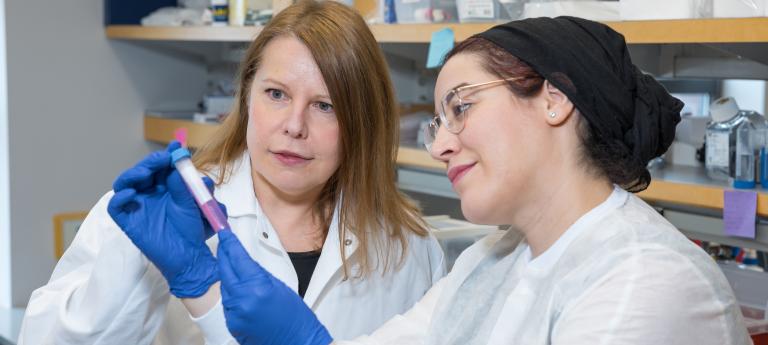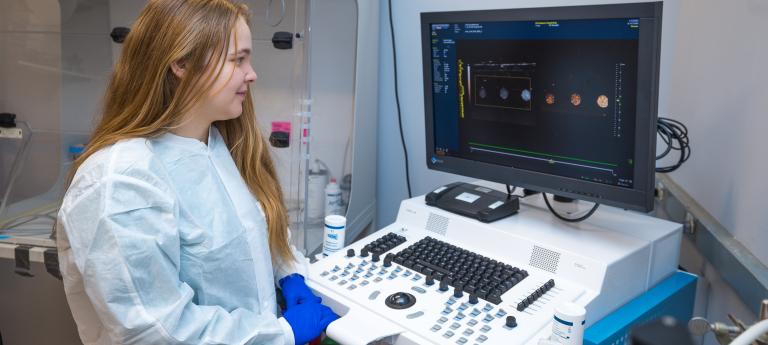What to Expect
Through our extensive research collaborations at the university and across Cleveland, plus rigorous classroom and hands-on learning opportunities, you'll gain a deep understanding of biomedical engineering. You'll gain a foundation in both biomedical and engineering coursework through core classes that will teach you how to adapt to today's biomedical engineering research environment. Plus, our graduate students complete teaching assistantships and two semesters of biomedical engineering seminars—helping you gain critical communication skills and stay up-to-date on current topics.
You also can specialize your studies in one of several biomedical research concentrations:
- biomaterials,
- imaging,
- biomedical sensing,
- analytics and health informatics,
- neural engineering,
- biomechanical systems and
- cardiovascular systems.





